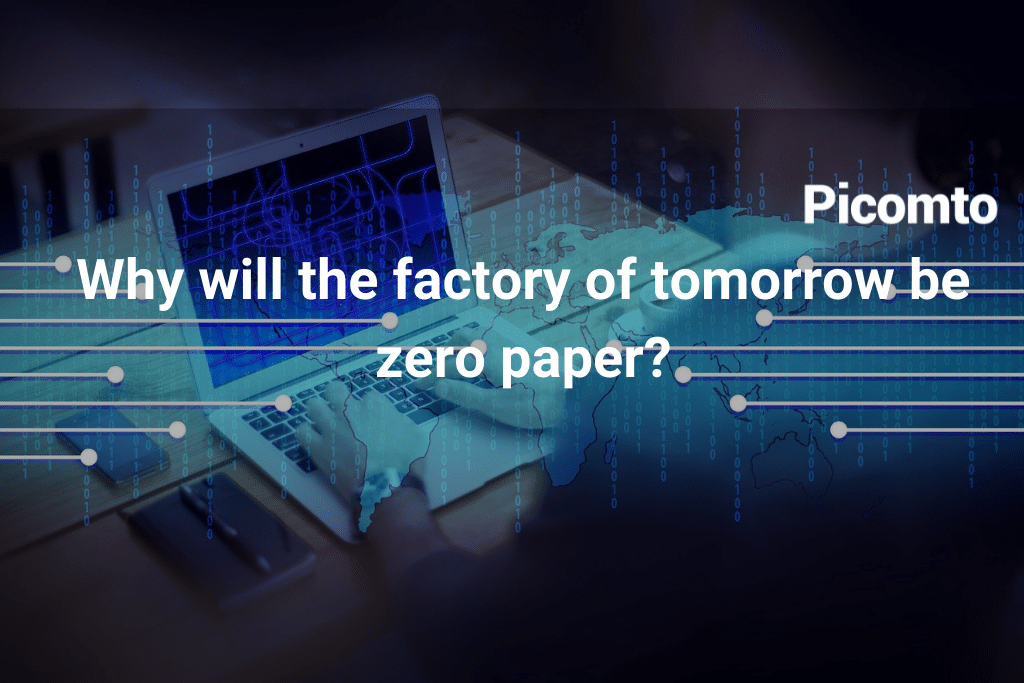
Tending towards zero paper is the objective of all industrial companies that seek to improve their efficiency and productivity.
While the company is undergoing digital transformation, certain issues such as productivity remain at the heart of companies’ strategy. In fact, saving time and resources is still an objective to be achieved by the majority of manufacturers. Besides, digital transformation urges companies to privilege connected factories that use digital tools to communicate and achieve their objectives. For this reason, industry is tending towards zero paper. This transformation has countless positive points. Let’s find out more!
Digitalization helps to be more flexible and responsive
Let’s start with the most obvious point. Digital aids ensure better flexibility and responsiveness than paper format. In fact, it is the biggest challenge of industry 4.0: A connected factory where employees share and exchange real-time information with each other and with machines.
Responsiveness between different teams is also essential for a successful company. It helps to anticipate unpredictable shutdowns and to plan necessary maintenance and supply actions.
Saving time and productivity
No one can deny that using paper industrial documents causes significant waste of time. In fact, research, filing, storage and update engender waste of time that could be invested in productive tasks. Also, zero paper allows industrial companies to minimize waste of time and money to boost total productivity.
The digitalization of industrial documents reduces the required handling and facilitates information access, sharing and update.
Work instructions are updated and more accessible
Digital work instructions are among the most essential industrial documents in the factory. Employees must have an immediate access to operating modes to better perform their tasks.
In addition, management will have better visibility on the application of work instructions and will make the necessary decisions pertaining to their update. Actually, digitalization of documents facilitates industrial data centralization by making organizational tasks easier and more efficient.
Zero paper= saving
The operating cost of an industrial company is declining due to the digitalization of documents and processes. A one hundred-employee company spends between 10000 and 25000 euros per year on paper. By moving towards zero paper, this significant budget is reinvested in the company’s development. Besides, digitalization has a great economic advantage that stems from the elimination of paper.
In addition to the economic advantage, zero paper has a great ecological benefit as well. It is estimated that the production of one ton high-quality paper requires the logging of 25 trees 12 m high. This is added to the ecological cost of paper’s mechanical and chemical processing. At the era of global warming, reducing paper consumption by industrial companies generates several significant ecological benefits.
Why moving to zero paper?
As previously mentioned, a one hundred-employee company spends up to 25000 euros per year on paper to create documents in production that are obsolete, not used and which cost the company a lot of money.
Obsolete paper work instruction = Production errors = Quality defects = Cost of money
In other words, the company actually spends a lot more money on paper.
What if you used work instruction software and quantified how much it would bring you in the long run?
- The operator has a constant access to the latest version of work instruction
- Data collection and automatic centralization
- Traceability and KPI linked to your production
- Security of your employees
Now turn your company to zero paper with digital work instruction software. Book your demonstration




Leave A Comment